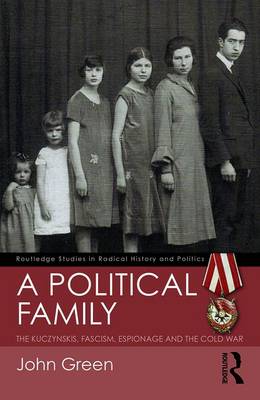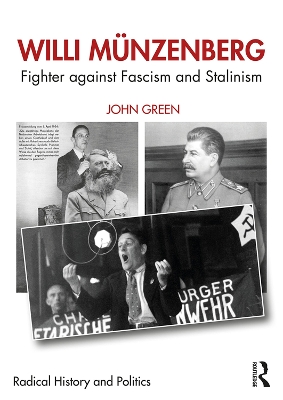Routledge Studies in Radical History and Politics
2 total works
The Kuczynskis were a German-Jewish family of active anti-fascists who worked assiduously to combat the rise of Nazism before and during the course of the Second World War. This book focuses on the family of Robert and his wife Berta - both born two decades before the end of the nineteenth century - and their six children, five of whom became communists and one who worked as a Soviet agent. The parents, and later their children, rejected and rebelled against their comfortable bourgeois heritage and devoted their lives to the overthrow of privilege and class society. They chose to do this in a Germany that was rapidly moving in the opposite direction.
With the rise of German nationalism and then Hitler fascism, the family was confronted with stark choices and, as a result of making these choices, suffered persecution and exile. Revealing how these experiences shaped their outlook and perception of events, this book documents the story of the Kuczynskis for the first time in the English language and is a fascinating biographical portrait of a unique and radical family.
Willi Münzenberg was a towering figure in the anti-fascist movement during the first half of the twentieth century. He was acquainted with many of the leading left wing activists and thinkers of his day including Lenin, Rosa Luxemburg, Karl Liebknecht, and Karl Radek. He also played a foundational role in several important transnational organisations such as the Socialist Youth International, the largest anti-war movement in opposition to the First World War, the International Workers’ Relief organisation, and the League against Colonialism and for National Independence.
As a film distributor and promoter, he brought modern Soviet films to western Europe. As a publicist and manager, he built up the most influential left-wing media empire in the Weimar Republic and initiated the pioneering use of photography and photo montage. He was also a long-time member of the Reichstag. He was a pioneer in the use of a variety of media and the way he gained the support and collaboration of progressive politicians, artists and intellectuals ensured that he would become the leading, and most effective, opponent of Hitler’s and Goebbels’ propaganda machine, as he exposed the venality and brutality of the Nazis. Late in life, his turn against Stalinism almost certainly led to his mysterious death.
This is the first detailed biography in English to give coverage to the full range of Münzenberg's activism. There are valuable lessons to be learnt from the book about the best ways to counter fascism which are powerfully relevant to our contemporary political situation. It should be of great interest to activists, scholars and those studying the history of the radical left.

